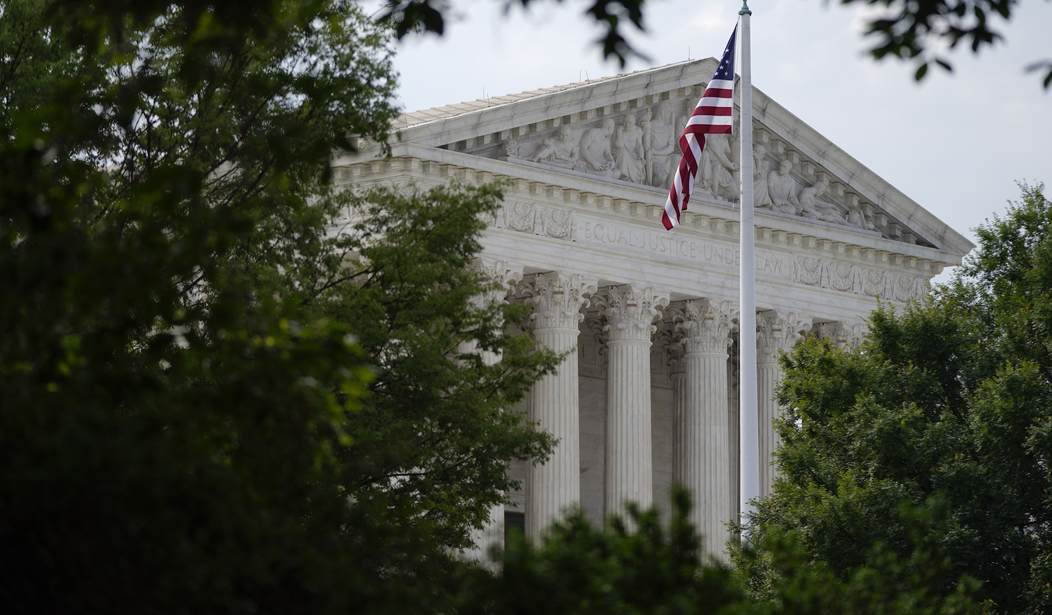In two cases the Supreme Court is considering, herring fishermen in New Jersey and Rhode Island are challenging regulatory fees they say were never authorized by Congress. Critics of those lawsuits misleadingly complain that the sympathetic plaintiffs are "providing cover" for a corporate attempt to "disable and dismantle" environmental regulations.
These cases ask the justices to reconsider the Chevron doctrine, which requires judicial deference to an administrative agency's "reasonable" interpretation of an "ambiguous" statute. While big businesses might welcome the doctrine's demise, so should anyone who cares about due process, the rule of law, and an independent judiciary, which are especially important in protecting "the little guy" from overweening executive power.
Maybe you should not take my word for that, since I work for a magazine whose publisher, Reason Foundation, has received financial support from organizations founded by Charles Koch, chairman of the petrochemical company Koch Industries. The New York Times describes Koch as the "hidden conservative backer" of the New Jersey case, which involves lawyers employed by the Koch-funded Americans for Prosperity.
The dispute at the center of these lawsuits is real, however, and it illustrates how vulnerable Americans are to the whims of federal agencies empowered to invent their own authority. The plaintiffs are family-owned businesses that cannot easily bear the financial burden imposed by the requirement that they not only make room on their cramped boats for observers monitoring compliance with fishery regulations but also pay for that dubious privilege.
That cost, which amounts to about a fifth of the money these businesses earn each year, adds insult to injury. "The framing generation was vexed enough by being forced to quarter British soldiers," writes Paul D. Clement, a former U.S. solicitor general who is representing the New Jersey plaintiffs, "but not even the British forced the unlucky homeowner to personally pay the redcoat's salary."
Recommended
Worse, Clement notes, the relevant statute says nothing about collecting such fees from operators of herring boats in New England waters, although it does authorize them, within specified limits, for "certain North Pacific fisheries, limited access privilege programs, and foreign fishing." Two federal appeals courts, the D.C. Circuit and the 1st Circuit, nevertheless ruled that the unauthorized fees fit within the leeway required by Chevron deference.
The Department of Veterans Affairs took advantage of the same doctrine to deny a disabled veteran three years of benefits it owed him, relying on an arbitrary rule it invented for its own convenience. When the Supreme Court declined to hear that case in 2022, Justice Neal Gorsuch noted that Chevron deference systematically discomfits the weak in such disputes by allowing the government to rewrite the law in its favor.
"Many other individuals who interact with the federal government have found themselves facing similar fates," Gorsuch wrote, "including retirees who depend on federal social security benefits, immigrants hoping to win lawful admission to this country, and those who seek federal health care benefits promised by law." The examples he cited included a case he encountered as a 10th Circuit judge, involving an immigrant who was fighting deportation under an executive board ruling that contradicted the appeals court's prior interpretation of U.S. immigration laws.
The victims in such cases are not billionaires like Charles Koch. They are ordinary Americans who are hopelessly outmatched by government agencies that write their own rules.
For decades, that license allowed the Drug Enforcement Administration to keep marijuana in Schedule I of the Controlled Substances Act, a classification that President Joe Biden rightly says "makes no sense." As the Department of Health and Human Services implicitly conceded last August, that policy was based on a highly implausible reading of the statute.
The lawlessness fostered by the Chevron doctrine, in short, should give pause even to Koch's progressive critics. The Goliath in this story is not Koch Industries. It is an administrative state that has usurped the judicial power to interpret the statutes under which it operates.

























Join the conversation as a VIP Member